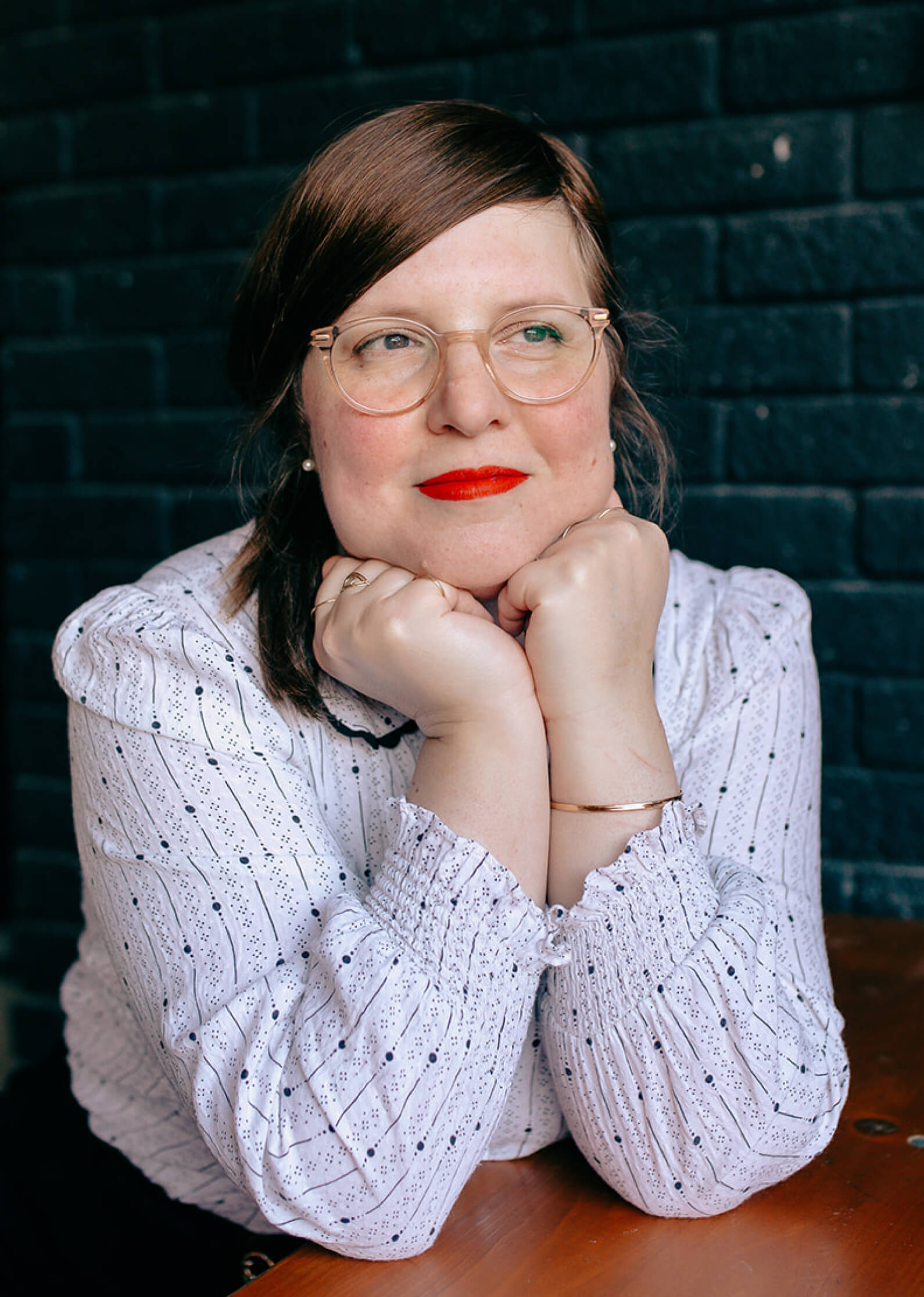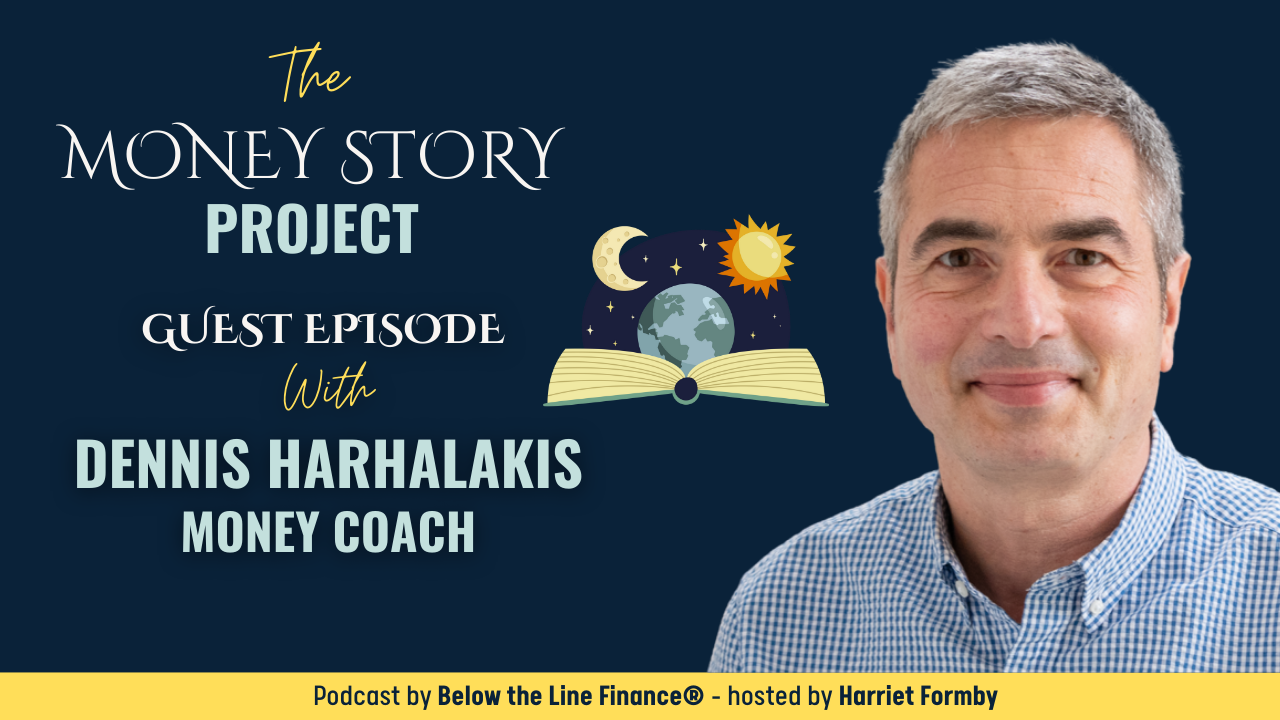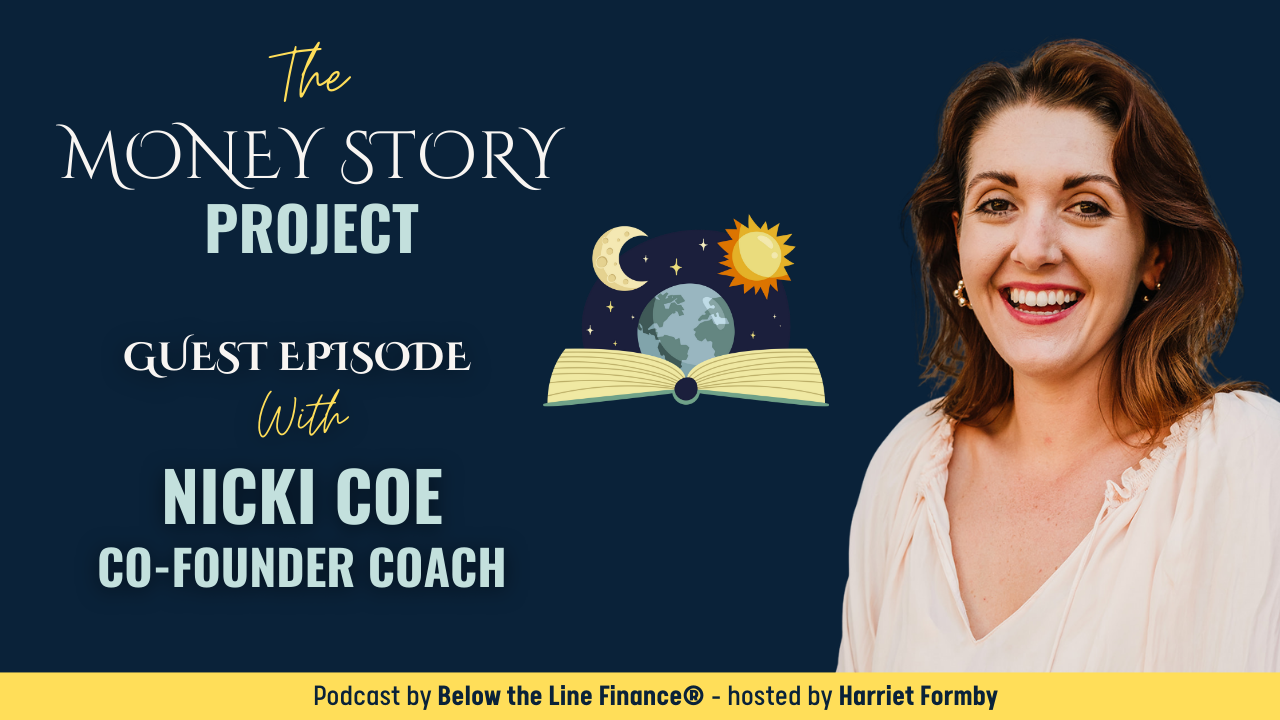Taboos, Power, and Reclaiming Money: A Conversation with Morín Glimmer
Taboos, Power, and Reclaiming Money: A Conversation with Morín Glimmer
Themes: systems not built for us • taboos as gateways to power • mixed family money messages • shame vs. emotional literacy • women, worth & the 80s • debt without tools • freelancer → business owner shift • pricing boundaries & aligned clients • money as love / a flow of energy • personifying money with compassion
The systems we live in were not built for us. In fact, as strategist and creative director Morín Glimmer puts it, “they were designed to keep us small, scared and separate, to stew in our own fears.”
Morín is the founder of Rosy Futures, a London-based holistic brand consultancy working with feminist founders and small businesses at the intersection of brand, body and cultural change. She’s also the co-host of Wombly Being, a new podcast exploring the links between menstrual cycles, productivity and power.
In our conversation for The Money Story Project, she opened up about money taboos, the cultural scripts she grew up with, the shifts she’s made as a business owner — and why reclaiming money has been part of reclaiming her own power.
Check-in: Money as Excitement and Dread
When I ask Morín what comes up for her when she hears the word money, she pauses.
“It’s a mix of excitement and dread. I can feel a shift in the energy around money, and that excites me. But my automatic reaction is still those old limiting beliefs that show up as dread. It used to translate to self-doubt, but not anymore — now it’s just a knot in my stomach. When I concentrate, I can let it go.”
That awareness of what’s happening somatically — and the ability to move through it — is one of the ways she’s redefining her relationship with money.
Mixed Messages: Doing Well, But Careful
Like many of us, Morín didn’t get much in the way of education about money growing up. What she did pick up was confusing.
“When I was around 11 or 12, I thought we were well off. We had a full fridge, holidays, we lived in the suburbs. But in reality there was pressure and tension around money. My dad got angry about high phone bills. My mum wouldn’t even buy herself a bottle of water on a hot day. The message was: ignore your needs, work hard, money is not easy.”
“Nobody teaches you to talk about money without shame. That’s what I had to unlearn.”
From the outside, her family life looked comfortable. Inside, the signals were mixed: you have enough, but you must be careful.
As Morín put it, “As a child, it was confusing — from the outside, we looked comfortable, but at home there was unspoken pressure around money. If no one names it, how can you tell what’s really going on?
Gender, Worth, and the 1980s
The biggest money belief she carried was that money wasn’t for women.
“Growing up in the ’80s, I was a witness to this new era where women were expected to work like men and still keep their traditional roles. I had no female role models who pursued careers out of choice. The message was: girls are not worth much. My options felt like either marry for security or find desperate measures for income.”
“Girls are not worth much — that’s the message I internalised as a teenager.”
By her 20s, she’d got into debt — and felt the shame of being “bad with money.” What she really lacked was tools:
“I did everything in my head, and that rarely works. It wasn’t until my mid-30s, a couple of years into self-employment, that I found the courage to face my fears, change my habits, get professional guidance, and most importantly start having open conversations.”
That shift was a turning point: from secrecy and shame, to dialogue and agency.
Early Lessons: Saving, Secrecy, and the Green Hippo
Some of Morín’s strongest memories of money are tied to family rituals.
Her grandfather would slip her notes in secret. “Giving money was a way for men in my family to show love,” she remembers. “But it was hush-hush — don’t tell everyone. And the message was: save it, give it to an adult, keep it safe.”
She laughs about another memory: being allowed to choose something in a toy shop. “I picked this plush green hippo that was on sale. I was proud because it was a bargain, and because I’d chosen the one no one else wanted. Looking back, I see how early the ‘always find the bargain’ script took root.”
It’s a sweet, vivid story, but also one that shows how even childhood purchases carry the weight of living up to expectations and modelling money behaviours.

Morín Glimmer Photo by: Celie Nigoumi
From Freelancer to Business Owner
When Morín first went freelance as a graphic designer, pricing was a constant struggle.
“The design industry is still dominated by men, and I felt I had to justify my worth before any work had even begun. Clients wanted cheaper proposals. It was exhausting.”
For a long time, she felt at the mercy of whatever project might land next. The turning point came when she reframed her role — no longer “just” a freelancer, but a business owner.
“I don’t say yes to everything anymore. I build my own offers, with aligned clients.”
“That change gave me so much more agency. Now I create my own offers. I say yes only to aligned clients. I collaborate. I don’t have to accept everything just because I need the money.”
It’s a transformation many founders will recognise: moving from the reactive “freelancer mindset” — waiting for projects to appear and feeling pressure to take whatever comes — to proactively shaping a business around your own terms and values. Freelancing can absolutely be empowering, but as Morín’s story shows, agency comes from how you see yourself and the choices you allow yourself to make.
make.
Systems, Taboos, and Power
The conversation turns outward, to the systems we’re all navigating.
“The systems we’re in are not built for us. They were designed to keep us small, scared and separate. And I’ve realised: every subject that is taboo is one that will lead you to your own power. If you’re avoiding something, if you’re scared of it — notice that, and give yourself compassion and curiosity to free yourself from that fear.”
For Morín, money is one of those taboos. But it’s not the only one. She draws a parallel with her own journey of reclaiming her menstrual cycle — shifting from shame and frustration to seeing her period as a source of rhythm and strength.
“Every subject that is taboo is one that will lead you to your own power.”
“I realised my journey with money mirrored my journey with my cycle. Both had felt like curses at times — things to dread or avoid — and both became places of power once I approached them with curiosity and compassion. It’s about recognising the cycles, the seasons, and working with them rather than against them.”
That lens of cyclical living also shapes how she runs her business today. Rather than chasing constant output, she pays attention to her own rhythms and strengths across the month, using them as a guide for her work.
“Money is like love — a flow of energy that sustains you and lifts you up.”
And she offers a reframe for money itself: money is like love.
“They’re both about giving and receiving. A flow of energy that sustains you and lifts you up. You’re either open to it, or closed to it.”
Reclaiming the Relationship
One of the most striking parts of our conversation was when I asked Morín: if money were a person, what would you say to them?
She smiled.
“The first time I did this, I wrote a letter forgiving money — letting go of the idea that she was a curse. Now, I’d invite her for coffee. I’d ask how she’s feeling, and what she has to teach me. I’d want her to guide me to the people I can help the most.”
🎧 Listen to the full podcast episode: Money Story Project Podcast with guest Morín Glimmer
About Morín
Morín Glimmer is a strategist, creative director and the founder of Rosy Futures, a holistic brand consultancy for feminist founders and small businesses. She works at the intersection of brand, body and cultural change, helping clients root their businesses in values and cyclical living.
She is also the co-host of Wombly Being, a podcast exploring periods, productivity and power, and the creator of In Your Element, a 1:1 brand and business planning experience for founders who want to work in rhythm with their cycle.
Connect with Morín:
- Instagram: @rosyfutures
- LinkedIn: Morín Glimmer
- Website: rosyfutures.com









